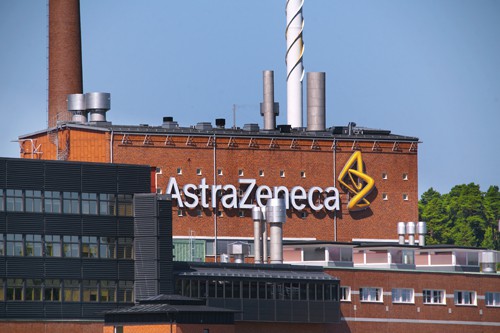
AstraZeneca has filed for approval of its PD-L1 inhibitor Imfinzi in lung cancer, its first filing for the cancer immunotherapy in the EU.
The company has moved swiftly ahead with the filing of Imfinzi (durvalumab) as a treatment of patients with locally-advanced (stage III), unresectable non-small cell lung cancer (NSCLC) whose disease has not progressed following platinum-based chemoradiation therapy based on the results of the PACIFIC trial.
Imfinzi was approved in the US in May as a second-line treatment after chemotherapy for metastatic urothelial carcinoma – the most common form of bladder cancer – becoming the fifth drug in the PD-1/PD-L1 checkpoint inhibitor class to reach the market but only managing to raise around $1m in revenue before the end of the second quarter.
The EU filing – which has been accepted for review by the EMA – is “an important milestone for Imfinzi in a disease state where patients need better treatment options and outcomes”, said AZ in a statement. “Currently, the standard of care for patients with this earlier stage of lung disease is active monitoring following concurrent chemoradiation.”
Patients treated with Imfinzi in PACIFIC gained an extra 11 months of PFS compared to placebo. Patients on AZ’s drug had a PFS of 16.8 months, compared to 5.6 months in the control group. The benefits were seen across all patient subgroups, regardless of PD-L1 status, and AZ’s drug was also associated with a lower incidence of metastases.
Imfinzi is the first checkpoint inhibitor to show an effect in this maintenance indication and according to analysts at Deutsche Bank could make upwards of $1.75bn in sales from this indication alone. The PACIFIC data upgraded the prospects for Imfinzi after the big disappointment of the MYSTIC trial, in which Imfinzi both alone and paired with AZ’s CTLA4 inhibitor tremelimumab failed to improve PFS in newly-diagnosed NSCLC patients. AZ is still hoping for a positive outcome when MYSTIC’s overall survival data comes in next year.
…as Tagrisso gains breakthrough status
Meanwhile, AZ got another boost to its ambitions in NSCLC after picking up a breakthrough designation for Tagrisso (osimertinib) in the US. The FDA awarded the status to the next-generation EGFR inhibitor for the first line treatment of patients with metastatic EGFR mutation-positive NSCLC on the strength of the FLAURA trial.
In that study, patients on Tagrisso had a PFS of 18.9 months, compared to just over 10 months for first-generation EGFR-targeting drugs, Roche’s Tarceva (erlotinib) and AZ’s own Iressa (gefitinib).
Tagrisso is already approved as a second-line therapy for this patient group, seeing its sales triple to $403m in the first half of the year. Claiming first-line approval would accelerate sales of the drug, which have been tipped to reach $2.5bn or more in 2022, according to EvaluatePharma.




